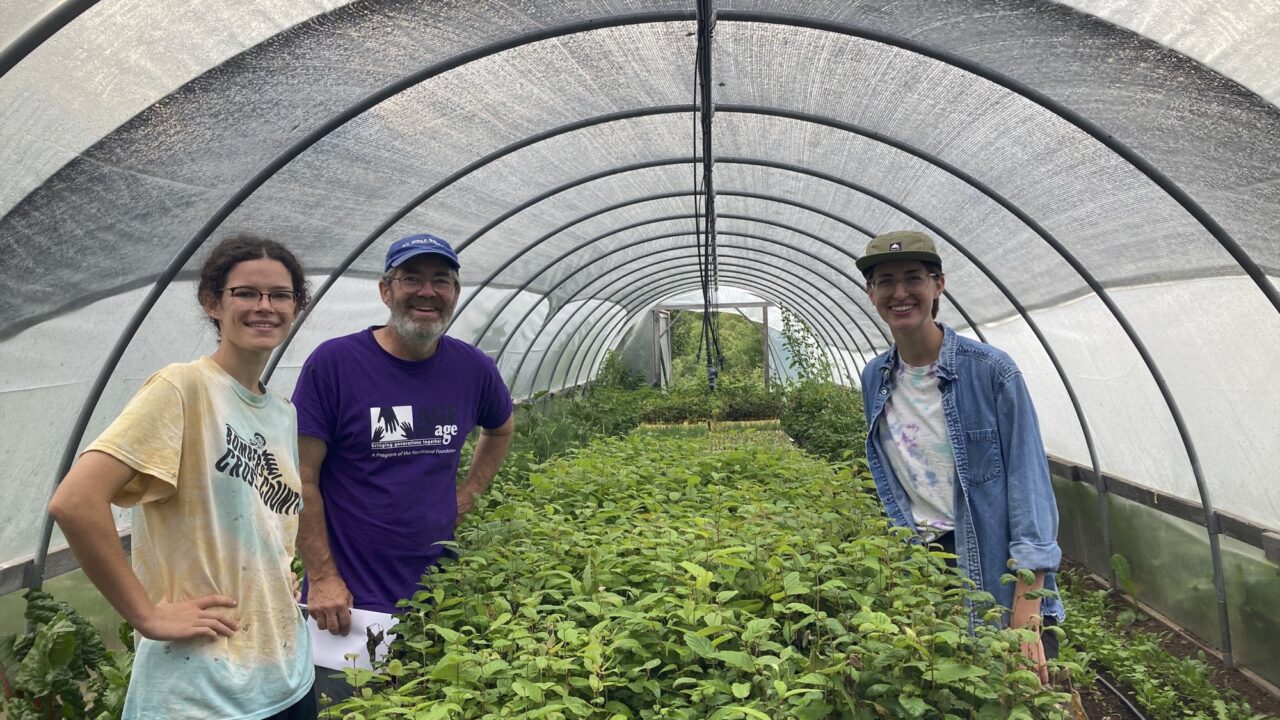The Northwoods are experiencing dramatic climate change and many northern tree species are declining. Without intervention, northeastern Minnesota’s iconic boreal species are predicted to be replaced by deciduous species and our forests will ultimately become oak savannas or open grasslands. If this happens, Minnesota’s northern regional economy, wildlife, culture, and everything that depends on the forests will be affected.
The Forest Assisted Migration Project (FAMP) is a multi-regional research and community engagement project underway to re-establish a resilient northern forest and bolster the regional economy. The project is meeting this vision through 1) development and implementation of a robust network for seed collection of tree species and populations that are predicted to thrive in the future, 2) formation of the Farm and Forest Growers Cooperative, a network of small farms and nurseries that grow climate-adapted tree seeds and then sell the seedlings to reforestation agencies and individuals, and 3) establishment of partnerships and seedling purchase agreements with reforestation agencies including The Nature Conservancy, county forestry departments, and Soil and Water Conservation Districts (SWCDs).
The Northeast FAMP project is now expanding into the Minnesota Million Initiative to reforest 1 million acres of land historically supporting forests. This initiative is creatively co-designing a statewide system for collecting, storing, distributing and planting climate-smart tree seeds. Over the course of the project, millions of seeds have been collected and thousands of trees have been planted to annually produce 1 million climate-adapted tree seedlings.
Partners include The Nature Conservancy, University of Minnesota: Duluth, UMN Extension, and the Farm and Forest Growers Cooperative.
Forest Assisted Migration Project's Interview
The Forest Assisted Migration Project is addressing a significant climate issue by re-establishing a resilient northern forest with partnership elements from tribal nations, nonprofits, and community groups. We applaud the local engagement and volunteer training with a focus on equity, and we appreciate the research and community involvement components – especially in some of the rural settings where they work.
About the Environmental Innovation Category
The Environmental Innovation Award recognizes partnerships dedicated to developing and sharing creative, innovative strategies that can create positive systems change within the environmental field.

Andersen is proud to collaborate with the Environmental Initiative due to their ability to foster new partnerships as well as their proven track record of accomplishing sustainability-focused initiatives that positively impact the environment locally in Minnesota and beyond. The Environmental Innovation award epitomizes their mission in bringing together talented and motivated individuals that drive measurable change. We are honored to sponsor this award and are in awe of the incredible work nominees have accomplished to continue to build a healthy environment, a prosperous economy, and an equitable society.
